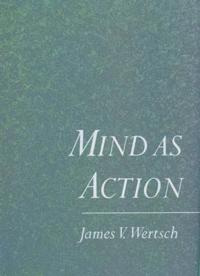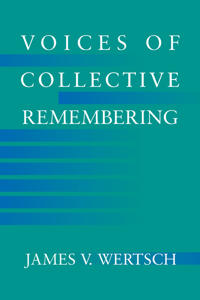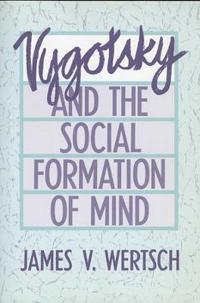Mind as Action (Inbunden)
avJames V. Wertsch
ISBN: 9780195117530 - UTGIVEN: 199712Wertsch argues against reductionist accounts of human cognition and proposes a sociocultural perspective, which moves beyond the isolated individual. He suggests that "mediated action" and cultural tools shape cognitive processes and can explain how they are organized.[...]
Voices of Collective Remembering (Pocket)
avJames V. Wertsch
ISBN: 9780521008808 - UTGIVEN: 200209There is currently a great deal of discussion in the humanities and social sciences about collective memory, but there is very little agreement on what it is. The first goal of this volume is to review various understandings of this term to bring some coherence to the discussion. Drawing on this rev[...]
Memory in Mind and Culture (Pocket)
avPascal Boyer, James V. Wertsch, Pascal Boyer
ISBN: 9780521758925 - UTGIVEN: 200905This text introduces students, scholars, and interested educated readers to the issues of human memory broadly considered, encompassing both individual memory, collective remembering by societies, and the construction of history. The book is organised around several major questions: How do memories [...]
Vygotsky and the Social Formation of Mind (Häftad)
avJames V. Wertsch
ISBN: 9780674943513 - UTGIVEN: 198807In a book of intellectual breadth, James Wertsch not only offers a synthesis and critique of all Vygotsky's major ideas, but also presents a program for using Vygotskian theory as a guide to contemporary research in the social sciences and humanities. He draws extensively on all Vygotsky's works, bo[...]






